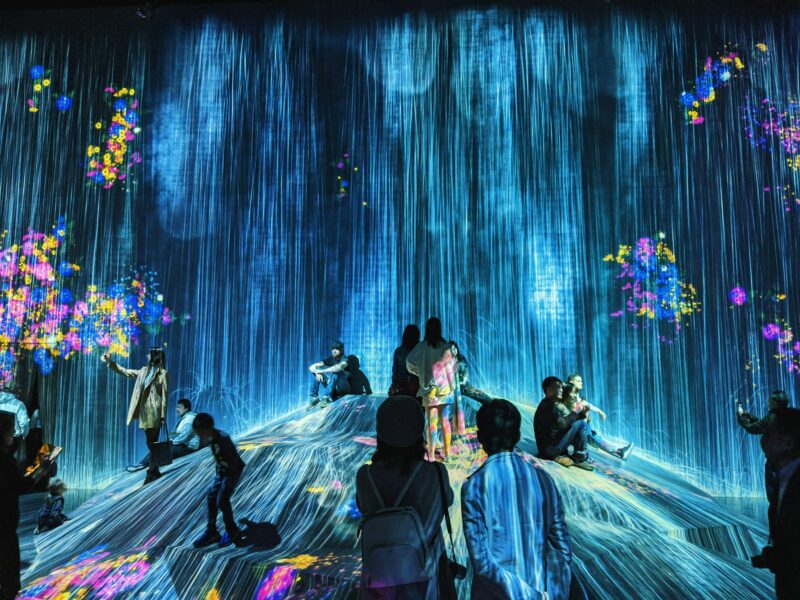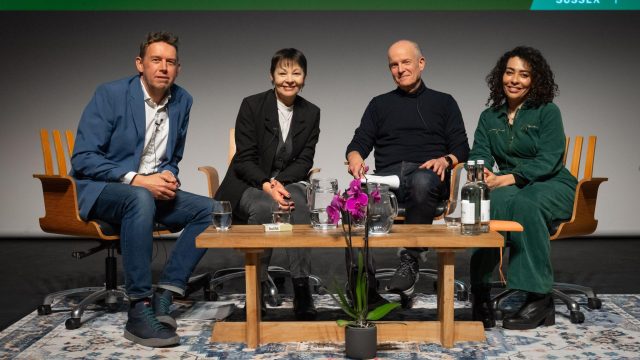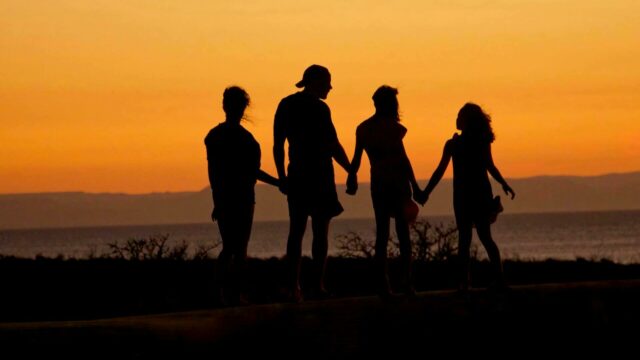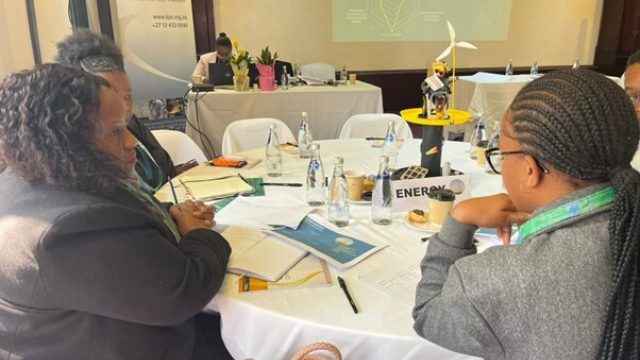A world reimagined: using art to shape a better future
A guest post from our Global Research & Action Network for a New Eco-Social Contract explores the role of art in just transition

Dr Dominik Havsteen-Franklin (Brunel University, UK) from our Global Research & Action Network for a New Eco-Social Contract working group on Disabilities, Intersectionalities and Eco-Social Contracts invites us to consider how art and the arts can help bridge the human-complexity divide.
In a world increasingly characterised by ecological upheaval and social transformation, the arts play a pivotal role in reshaping and redefining our social fabric. They serve not just as a form of aesthetic expression but as vital conduits for addressing some of the most pressing challenges of our times.
Arts, in their broadest sense as creative acts of expression within specific social contexts, magnify issues that often go unnoticed amidst daily life. Arts help to magnify the problem to scales that we engage with, without losing complexity, thereby bringing into focus issues that are typically overlooked in the fast-paced realms of social media, news, and local affairs.
One profound example is the impact of human activities on the environment. Over generations, our actions have contributed to environmental changes at a seemingly imperceptible rate, now threatening numerous species, including our own.
The startling fact that human actions are accountable for the loss of over 70% of the world's wildlife often comes as a surprise, raising questions about our collective awareness and engagement with the natural world. Have we truly noticed the lessening of birdsong, the declining numbers of wildlife, the degradation of ecosystems, now primarily viewed as resources for human consumption?
This era is paradoxical in terms of human perception. The expansion of our viewpoint from local to global scales can lead to a sense of detachment from our immediate surroundings. The philosopher Donna Haraway's concept of ‘response-ability’ becomes pivotal in this context, highlighting our responsibility in the face of global challenges.
Similarly, Timothy Morton’s notion of ‘hyperobjects’ – vast, complex problems that defy full comprehension – underlines the difficulty in grasping the entirety of issues like climate change. When we think of the globe, we think of a homogenized mass, a perception that often renders individual actions as trivial or overwhelming.
“ The arts, therefore, are not just about creating beauty or evoking emotion; they are about fostering a profound sense of responsibility, awareness, and action.”
Karen Barad's reflections on the interplay between the human and inhuman elements in our environment offer a profound insight: “What if it is only in facing the inhuman—the indeterminate non/being non/becoming of mattering and not mattering—that an ethics committed to the rupture of indifference can arise? What if it is only in the encounter with the inhuman—the liminality of no/thingness—in all its liveliness, its conditions of im/possibility, that we can truly confront our inhumanity, that is, our actions lacking compassion?”
The transformative capacity of the arts lies in their ability to forge new understandings, relationships, and avenues of action. Artistic expression through mediums like colour, sound, movement, and form introduces fresh perspectives to our ecological and social interactions.
Gilles Deleuze's idea of 'assemblage' resonates deeply in this context, indicating a dynamic interplay between individuals and their environments. Arts feel their way beyond preconceptions, paving the way for new forms of discourse and understanding. The engagement with arts, particularly from marginalised perspectives, can be disconcerting yet is essential. It challenges us to confront our alienation as a result of marginalisations and to co-create futures that acknowledge and embrace our interconnectedness within the larger tapestry of life.
In essence, the arts can diffract our collective experiences and the myriad ways in which we interact with our world. They transcend mere representation, becoming a living, breathing part of the assemblages they depict and influence.

Through the arts, we not only see the world differently but are also compelled to act differently. They bring to light the often unseen or unacknowledged intra-actions between culture and nature, challenging the artificial boundaries we construct.
The arts, therefore, are not just about creating beauty or evoking emotion; they are about fostering a profound sense of responsibility, awareness, and action. They encourage us to embrace the complexity of our world and our place within it, pushing us to think, feel, and act in ways that nurture a more inclusive, diverse, and sustainable world.
- Dr Dominik Havsteen-Franklin, Brunel University (UK)
This blog was published as part of our Global Research & Action Network for a New Eco-Social Contract, a joint project with UN-RISD.


